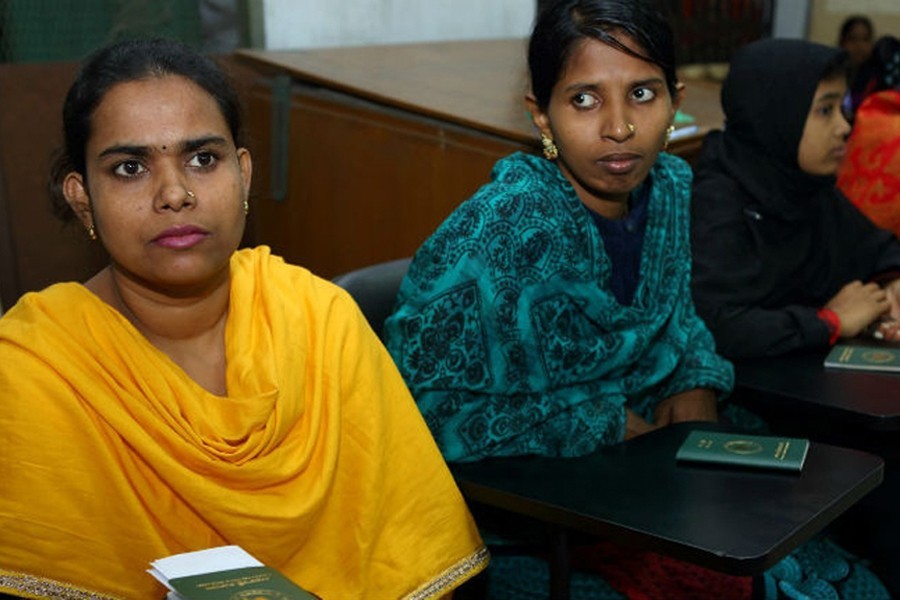Wage Earners' Welfare Board has recently launched are integration project of Tk 60 million for 3,000 returnee female migrant workers to support them in their income-generating activities.
Each of the workers will get Tk 20,000 to start their livelihood plans. This money will be distributed among the women as a grant, officials said.
Because of the Covid-19 fallout, about 50,000 women returned home until December 2020.
Besides, a significant number of women workers returned home earlier being cheated or tortured by recruiters and employers.
According to the welfare desk at the Hazrat Shahjalal International Airport and rights activists, at least 10,000 female workers returned home from different countries of the Middle East following exploitation between 2016 and 2019.
Zahid Anwar, deputy director and focal point of information at Wage Earners' Welfare Board, said they had a plan to distribute the money by June this year.
They have already selected 950 women workers; of them, 70 women have been provided with the fund, he said, adding that they were working to enlist the remaining beneficiaries.
Mr Anwar said they also had a plan to start the second phase of the reintegration programme after completing the ongoing phase.
The wage earners' board maintains a welfare fund for expatriate Bangladeshi workers. The fund has been created with the contributions of migrant workers. Workers pay Tk 3,500 as a welfare fee while getting immigration clearance.
The board also provided a fund of Tk 20 billion to the Probashi Kallyan Bank to run reintegration loans to returnee migrant workers last year.
The board operates different schemes including financial grant to the families of dead migrant workers and ailing workers. It also is running a stipend programme for meritorious children of migrant workers.
Migrant rights activist and Chairperson of the Ovibashi Karmi Unnayan Programme (OKUP) Shakirul Islam said it
was a good initiative that would help woman workers reintegrate into society.
Shakirul, however, underscored the need for adopting a sustainable programme for these women.
In this case, he opined, the returnee women should be brought under the government's social safety net programme.
The allocation as the reintegration fund also should be increased so that the workers can start their ventures, he added.
The Bureau of Manpower Employment and Training data showed more than 0.9 million Bangladeshi women went abroad with jobs since 1991. Most of them are in the Middle East.


